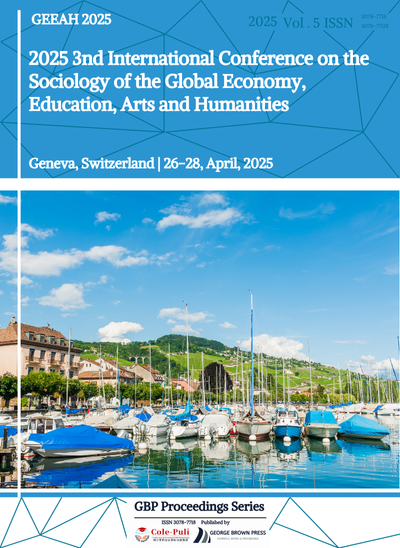Research on the Coupling and Coordinated Relationship between Economy and Ecological Environment in Qinghai Province
DOI:
https://doi.org/10.71222/aeqe3144Keywords:
economic development, ecological environment, regional high-quality development, coupling coordinationAbstract
Qinghai Province, as the source of the Yellow River and a key ecological barrier, has a relatively low economic development level. Promoting high-quality economic growth within ecological limits is essential. Based on 2011-2021 economic and social data, this study constructs an evaluation index system for coordinated economic-ecological development and analyzes its progress. The results show a gradual improvement in coordination, but challenges such as ecological fragility, resource exploitation conflicts, and industrial imbalances persist. The study suggests scientifically informed planning, balancing conservation and development, leveraging resource endowments to foster emerging industries, and building an ecological agro-pastoral economy to drive sustainable growth.
References
1. Z. Wang, F. Wang, and S. Ma, “Research on the coupled and coordinated relationship between ecological environment and economic development in China and its evolution in time and space,” Pol. J. Environ. Stud., vol. 34, no. 3, 2025, doi: 10.15244/pjoes/188854.
2. X. Liu and J. Zhou, “Analysis of the Kuznets curve relationship between economic development and ecological environment in Aba Prefecture,” PLoS One, vol. 20, no. 3, e0319929, 2025, doi: 10.1371/journal.pone.0319929.
3. L. Hong, J. Sun, D. Liu, W. H. Zhang, and C. X. Zou, “Research on the development of coupling coordinated relationship and the affecting factors of eco-environment and socio-economy in central urban agglomeration of Yangtze River Delta region,” J. Ecol. Rural Environ., vol. 40, no. 9, pp. 1155–1166, 2024, doi: 10.19741/j.issn.1673-4831.2023.0662.
4. G. Cheng, G. Li, X. Pu, C. Chen, and Y. He, “Advancing coupling coordination simulation in the social-human-ecological sys-tem of the Three Gorges Reservoir Area: A multi-scenario system dynamics approach,” Ecol. Indic., vol. 158, 111504, 2024, doi: 10.1016/j.ecolind.2023.111504.
5. S. Chen, M. Hou, X. Wang, and S. Yao, “Transfer payment in national key ecological functional areas and economic devel-opment: Evidence from a quasi-natural experiment in China,” Environ. Dev. Sustain., vol. 26, no. 2, pp. 4075–4095, 2024, doi: 10.1007/s10668-022-02871-w.
6. Y. Guo, W. Xie, and Y. Yang, “Dual green innovation capability, environmental regulation intensity, and high-quality economic development in China: Can green and growth go together?,” Financ. Res. Lett., vol. 63, 105275, 2024, doi: 10.1016/j.frl.2024.105275.
7. H. Wang, W. Wu, L. Xiong, and F. Wang, “Is there an environment and economy tradeoff for the National Key Ecological Function Area policy in China?,” Environ. Impact Assess. Rev., vol. 104, 107347, 2024, doi: 10.1016/j.eiar.2023.107347.
8. X. Yan, T. He, P. Qian, and Z. Liu, “Does the construction of Pilot Free Trade Zones promote the development of green economy? A quasi-natural experiment evidence from China,” Econ. Anal. Policy, vol. 81, pp. 208–224, 2024, doi: 10.1016/j.eap.2023.11.032.
9. Z. Yu, S. Liu, and S. Li, “Research on the spatial effect of digital economy development on urban carbon reduction,” J. Environ. Manage., vol. 357, 120764, 2024, doi: 10.1016/j.jenvman.2024.120764.











